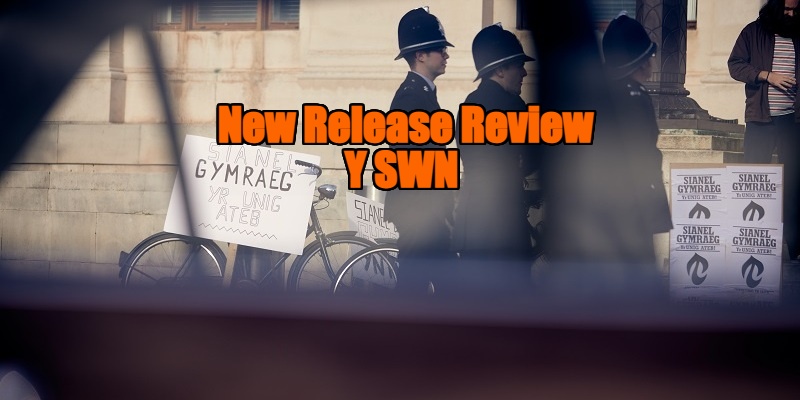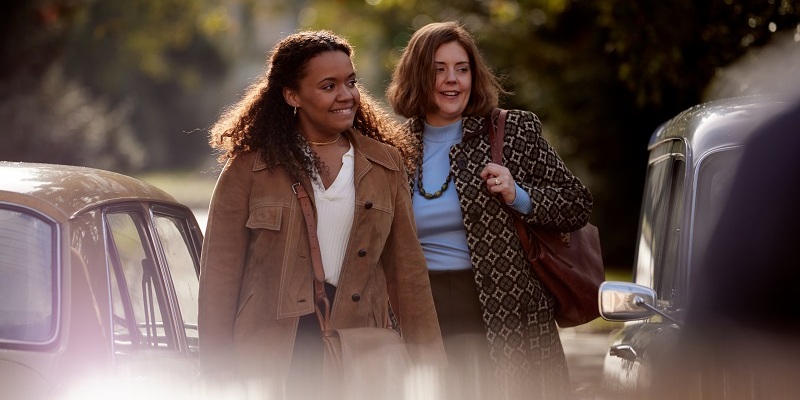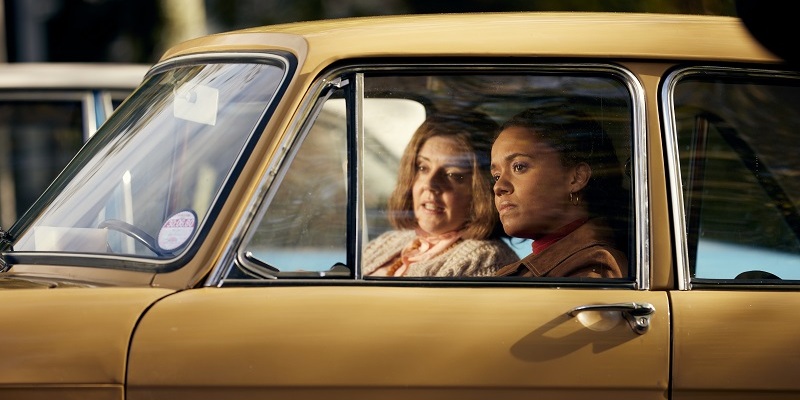
In 1979 the UK government's refusal to establish a Welsh language TV
channel leads to a campaign of civil disobedience.
Review by
Benjamin Poole
Directed by: Lee Haven Jones
Starring: Rhodri Evan, Mark Lewis Jones, Lily Beau, Eiry Thomas, Sian
Reese-Williams, Mensah Bediako, Lisa Jen Brown

It's easy to forget, but until relatively recently there were only three
television channels available in Britain. A fourth, S4C or Channel Four
(depending on region) began broadcasting just 40 years ago, a full half a
century after the first BBC transmission. Beating its counterpart by one
day (S4C came into being on the 1st November 1982, Channel 4 the 2nd),
Wales's S4C was a channel dedicated to the Welsh-speaking audience. At
this time, around 25% of Wales were Welsh speaking, and paid full TV
licence fees for a service which provided piecemeal value. Only during
off-peak times was Welsh content occasionally narrowcast via BBC Cymru and
the ITV franchise in Wales. Welsh speakers found this inconvenient, and
non-Welsh speakers were nonplussed at interruption to their service.
Thousands of members of Plaid Cymru (Welsh centre left political party)
refused to pay their TV licence, Thatcher's government U-turned on a
previous pledge to instate a Welsh television channel, and Plaid Cymru
leader Gwynfor Evans threatened to go on hunger strike to death unless S4C
came into being. Enter Y Sŵn.

Translated as "The Noise," Y Sŵn (directed by
Lee Haven Jones, with Roger Williams writing and producing -
the same team behind my fave Gwledd) makes good on its title with a lively opening house party; the camera
weaves in and around Eighties yoof, as a colour palette pops and neon
title cards locate time and place. For a narrative predicated upon board
room debate and the quiet protests of its protagonist, at times
Y Sŵn really gives it some welly. Adding to the sense of
vitality, the storyline is split across three threads comprising of a new
generation represented by a young woman (Ceri - Lily Beau Conway)
who works in Welsh government and has conflicted feelings about the
channel, the oppositional Tories up in Westminster, and dear old Gwynfor
Evans who sees the potential channel as a key battle in the "fight for the
soul of the nation."
To express the distinct chapters of its plot, Y Sŵn affects
different styles and aspect ratios. The stuffed shirt Conservatives are
shot in distant monochrome (Sian Reese-Williams' Thatcher supports
a pet theory that cinematic portrayals of past heads of state can only
ever be communicated as absurd parody), while Ceri's story is often filmed
in urgent close-up and medium angles. Y Sŵn's most graceful representation is saved for Gwynfor, however, whom the
film presents in warm tones and within rustic milieus (there is a festive
sequence which soothed my heart with its inherent cosiness - could Haven
Jones and Williams be persuaded to produce their version of A Child's
Christmas in Wales?).

Played with care by Rhodri Evan, Gwynfor Evans is the heart of
Y Sŵn. Beaten down before he even begins, Gwynfor has lost his parliamentary
seat in a humiliating defeat and duly fixates on the new channel. Does the
film suggest that Gwynfor's dedication to S4C is a manifestation of his
need to make purpose of his life and career? The visual set associates
Gwynfor with earth and nature, from the spuds he peels at the sink, the
windswept hills he walks upon, to the deep lake which he fantasises
drowning himself in.
It is the fatalistic edge of Gwynfor which gives Y Sŵn its
insistence, imbuing the establishment of the channel with life or death
relevance. In one of its characteristic flights of fancy,
Y Sŵn features Martin Luther King Jr. and Mahatma Gandhi as
Gwynfor's self-fulfilling projections (they appear in the same way Elvis
does for Clarence in True Romance). This at-times whimsical nature of Y Sŵn is suitably
countered by the film's pointed use of archive footage, which underlines
the severity of what was at stake: burnt cottages, riots at the
Eisteddfod, nationalist vandalism.

Perhaps we've forgotten as a country how valid the need for this channel
was, not only as a medium to share Welsh culture, but as a platform of
representation. Y Sŵn, with its fun storytelling and deep heart, is a timely reminder of what
S4C meant and continues to mean to the nation (since we're both here, I
cannot recommend Shakespeare: The Animated Tales, which the channel produced with the Russian Soyuzmultfilm studio,
enough: strange and vibrant and a thrilling example of S4C's idiosyncratic
output). In the film's denouements, we see people across Wales watch the
first broadcast of the channel, a beautiful moment of shared national
experience. One final note: S4C's viewing report for the 20/21 period
showed a viewer increase of 27% from 2019.

Y Sŵn is in UK cinemas from March
10th.

